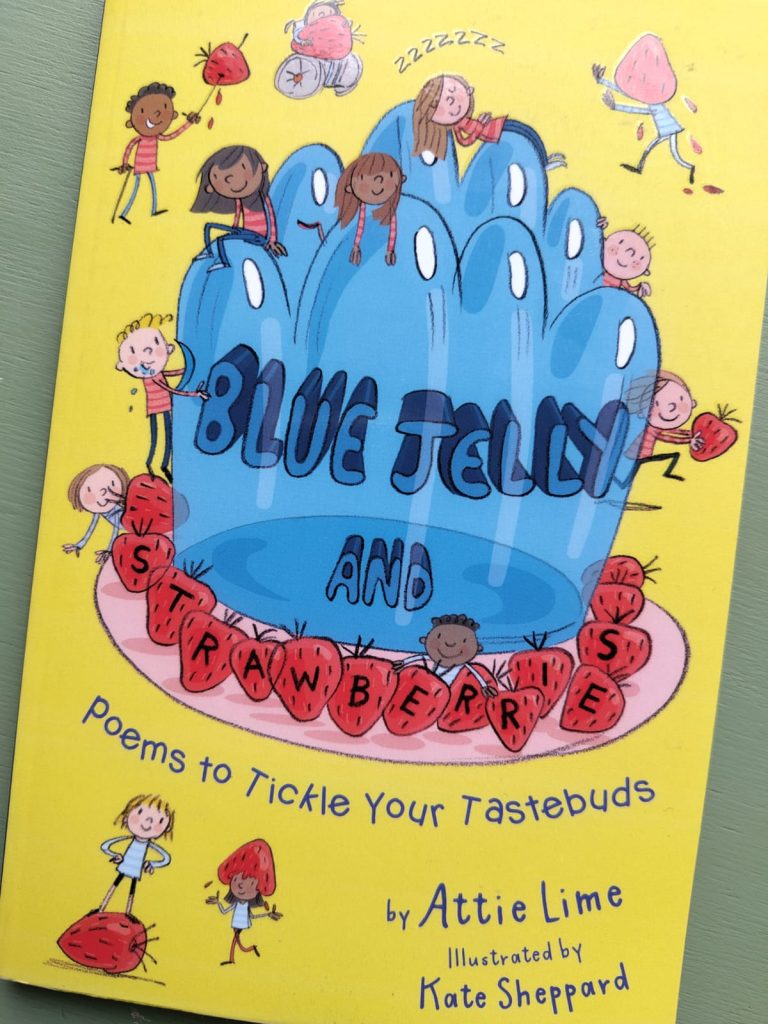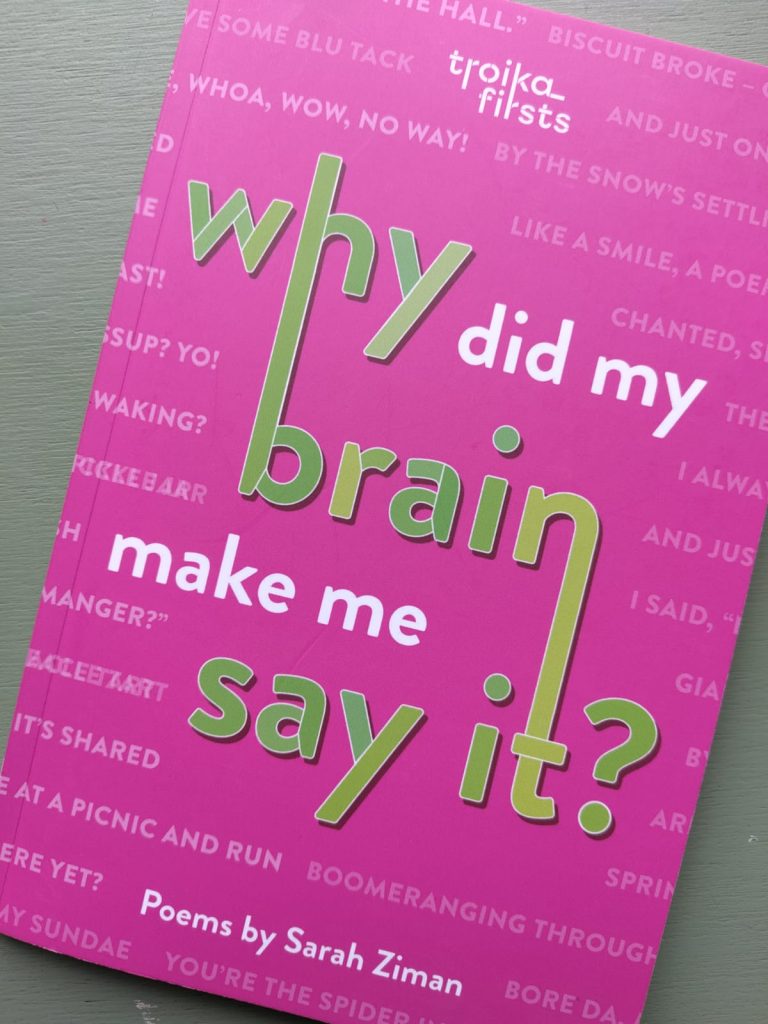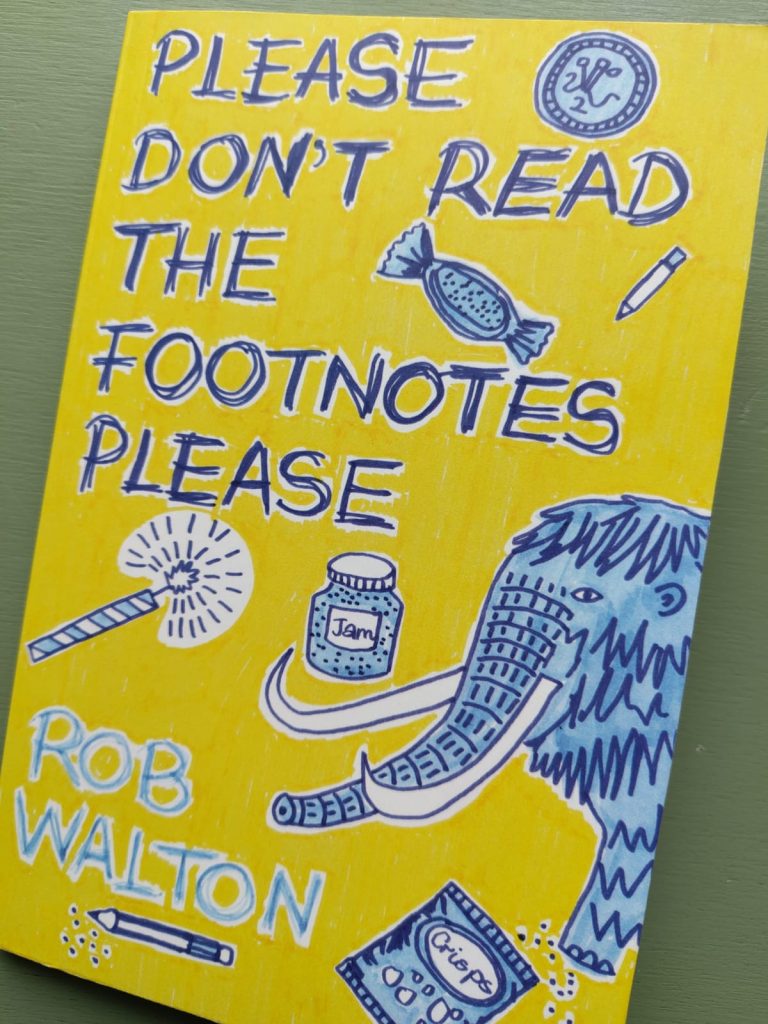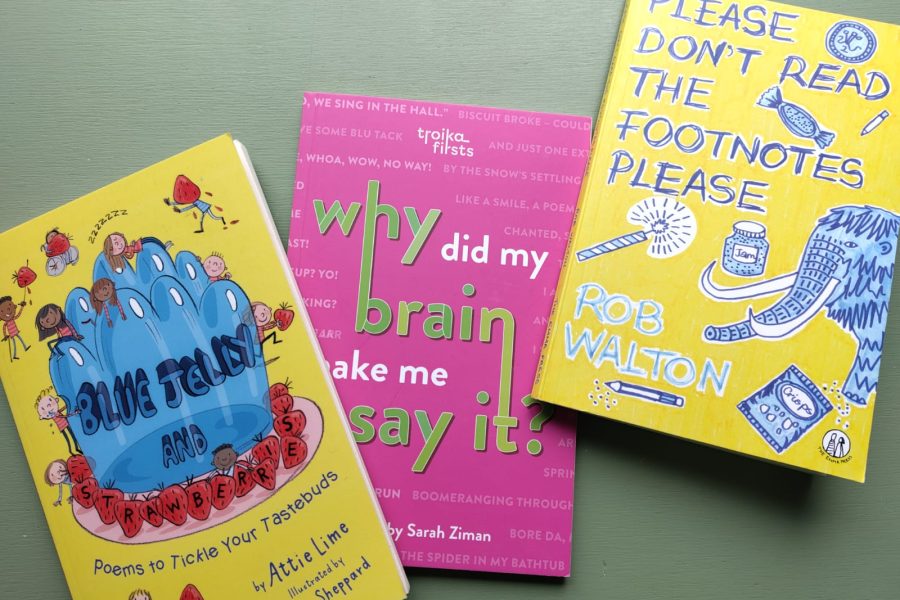Obviously all times are reading times but it’s always a good idea to remind us that Reading Time Is Now. I love reading and still it’s astonishing how often I have to let other things get in the way of it.
So, now that summer is truly here – as I write I’m looking out of the window wondering whether to bring the laundry in or leave it out to take its chances – here are a few recommendations that I’ve been meaning to flag up for a while. There are three books here for children, all of them written by poetry friends; but that’s not why I’m pointing you to them at all. They are each brilliant, exciting, wonderful and cracking summer reading.

Starting with the youngest-aimed, Attie Lime’s first collection is Blue Jelly and Strawberries, which is a joyous book for early readers (think KS 1-2). It is a collection bursting with fun, and especially the fun of words and the magic they conjure. Attie plays with rhyme and rhythm, and especially enjoys making up words. The collection begins with Our Weekend, a poem almost entirely made of made-up words that we can all immediately understand. There are list poems; I think my favourite is In My Hat I Can Carry. There are poems with really short lines, which as well as being splendid poems give huge encouragement to early readers.
There’s an overwhelming feeling of fun, joy and freedom to adventure, so it’s really special to see a couple of poems that address things that can be challenging for young children. Masks gently asserts that it’s OK to be me, whoever that is, while Bad News is eight important lines that a child can sit with whenever they are dealing with any kind of bad news, knowing they’re not alone in their sadness.
There are many great things about poetry books, and one of them is that you don’t need any kind of attention span to enjoy them. They can be dipped into and out of, and riffed off. Some of Attie’s poems invite children to try writing for themselves, most explicitly In My Hat I Can Carry. I shall be trying my own hat-container-based poem shortly.
Buy Attie’s book from Bookshop.org or any of the other usual places.

Why did my brain make me say it? by Sarah Ziman, is aimed at older children, KS2-3. It zings with every bit as much enjoyment of words and what happens when you play with them as Blue Jelly and Strawberries, and it focuses more on navigating change. There are poems about moving to a new place – New Girl/Merch Newydd, about the transition to secondary school – In-betweener and many other times in a child’s life when resilience is needed. The poems don’t shy away from challenge, but give the reader a space to sit with it, cocooned in the arms of the poem.
Whether they follow strict structure or go freestyle, these poems have an elegance about them that eases you into the subject matter and makes you want to stay with them, even learn them. I never had a little sister but Reasons my little sister cried this week rang clear bells. I had school dinners but Packed lunch had me laughing out loud – more than once. These are clever yet accessible poems: even the riddle poems, though they get you frowning, are do-able (especially with helpful clues!)
Sarah loves to play with form, including shape poems, Haiku and even a Triolet in the collection. There’s lots of pairings and opposites, doing different kinds of work: Opposites relishes a friendship between two very different people while Granny and Grandad celebrates being loved by grandparents. Some poems tell stories, like Rumours, Nature Walk and Inventor, and these and the collection in general are full of laugh-out-loud moments. And once again there are poems that give a structure or a prompt for readers’ own writing. What could be better in the summer holidays? A book not only to read but that gives you ideas for things to do!
Buy Sarah’s book from the usual places, or if you want a signed copy visit her website here

Finally, Rob Walton’s Please Don’t Read the Footnotes Please, is also for KS2-3. This is a book of tiny fictions, ranging from a paragraph to three pages, and its brilliant concept makes it difficult to categorise. The stories range from convincing-yet-surreal evocations of classroom situations and characters – Ms Tang being a personal favourite, to fantasies involving a talking horse called Jeremy who comes to live in the protagonist’s flat, a bunch of (possibly) medieval knights and a family game called Random which I plan on playing with my own family. The stories are huge fun, but what takes the book to the next level is the footnotes – which you absolutely have to read. I love a footnote and Rob has almost literally given them a life of their own.
The way Rob uses the footnotes means that as we read there is a complicated conversation going on among narrator, author, publisher, footnote writer (who may or may not be the narrator and/or author) and reader that makes my head swim and that I haven’t experienced since failing to get to the end of Sterne’s Tristram Shandy (one day I shall get all the way through). When I first came across Tristram Shandy I was mesmerised by the way the writing played directly and materially not only with me but with the physical page and print too. It’s dizzying and So Much Fun – and I get that from this book, too – although I reached the end of Rob’s book far too easily and am disappointed there isn’t more! There are two more things that distinguish this book of prose. First, the stories are so short that readers who can’t face a whole novel are set free just to enjoy this – and there is a great deal to enjoy. Second, unlike many (most?) contemporary middle grade novels, there is nothing explicit here about the challenges of fitting in as a young person today; but this book provides a vital service by giving freedom to play with words, ideas and stories with no judgment and no consequences: surely supremely important in the holiday season! And, bonus, there is a section at the end giving suggestions for how readers could do their own writing; suggestions that offer total freedom to wander from structure, not to worry about length or coherence, just to play. You can buy Rob’s book here
You may already know that one of my favourite quotes is from Michael Rosen:

All of these three books don’t just show children how this can be done, they invite children into the adventure.
